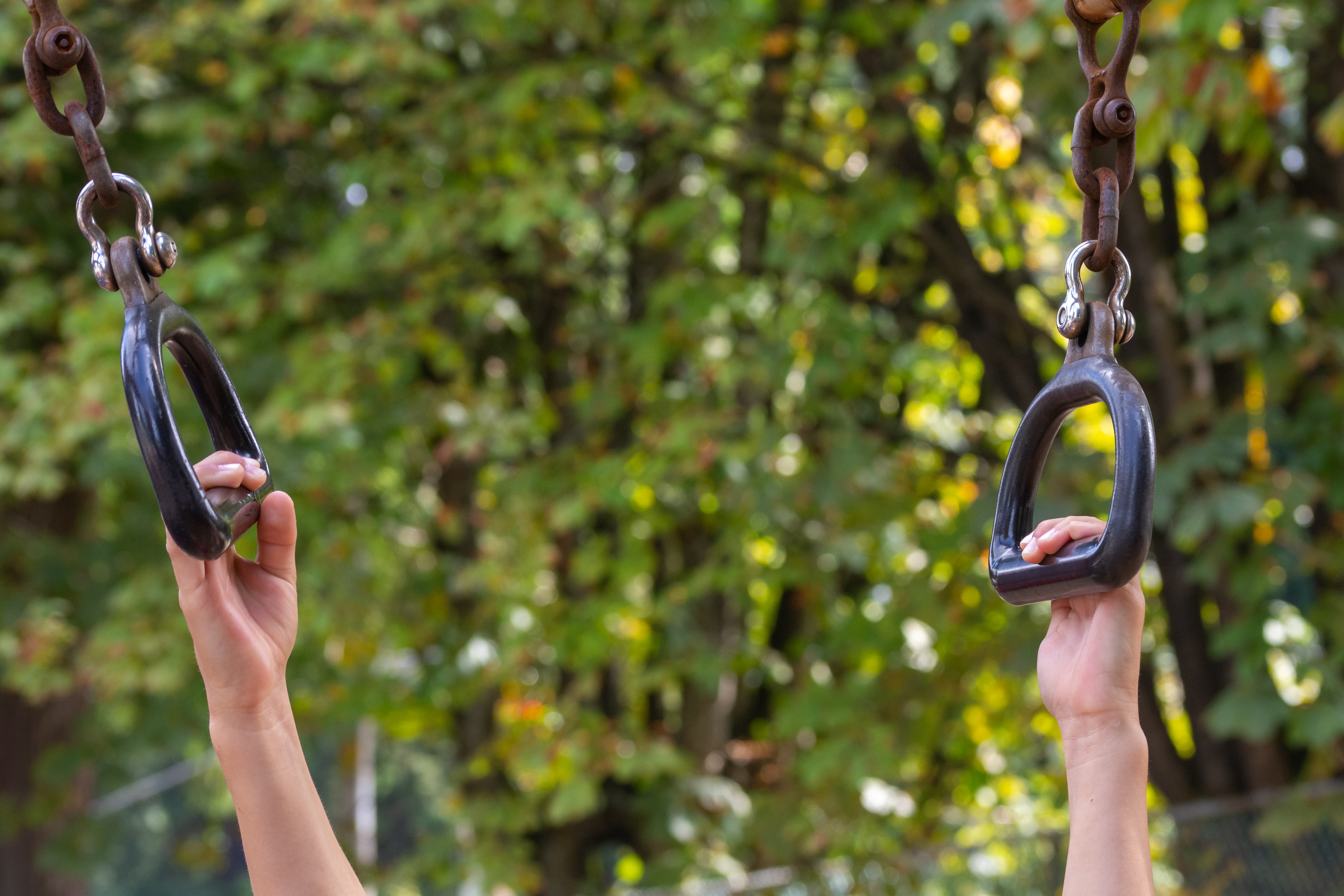By Jacob Cerin
Several months ago, I attended Club Carnival.
The stall I was running was among the few without a marquee – and one of the few whose president assumed we’d be provided one. There was a stall near ours with a monkey bar and a leaderboard in front of it. Students would go to the bar and hang until they fell off. I’d done this before, hanging in the leagues of over two minutes, and the current king of the leaderboard hadn’t even met that.
The monkey bar wasn’t tall enough for my legs to hang straight, but I had done hangs on short bars before. The student timing kept the clockface on his phone to himself, although he did at least tell me each time thirty seconds passed. The student only spoke twice – once because I fell off while readjusting my grip at around sixty-five seconds.
My clumsiness while changing positions on the bar wasn’t why I fell.
It came because I was acutely aware there was a dead hang contest going on.
Despite having hung on bars before, it had always been solo. This time, I was hanging with observers, against contestants – there would ostensibly be something waiting after that would hugely elevate my quality of life.
The work of a dead hang is based on keeping your body tight, breathing well, tolerating forearm ache, and hoping there’s no grip slippage. It’s a balance between controllable factors and luck. I was also given advice by the student timing me, to engage my scapula. I had enough success to get me past forty-five seconds.
The halfway time of the record passed. The only pressure at the start, when I grabbed the bar, was to not do a crap time. As the seconds went by, I was raking in moderating success. But I still celebrated simply hanging onto the bar; I was not judging myself in a binary way of whether I beat the record. I stayed on the playful side. Towards the halfway mark, it was clearer to me and the student with the stopwatch that I was far better than crap.
I felt some pressure but even after that point, my competence stayed.
Eventually, the mantra that I was at best mediocre at dead hangs departed. At this point, the seconds on the clock stopped coming in seconds. They instead came in no smaller than one-minute blocks.
The appreciation I racked up for the seconds I’d already done, on the basis I was at best mediocre disappeared. I started thinking more ambitiously.
The students running the stall probably had a half-passionate complement waiting for me, if I set a new record on their rinky-dink monkey bar. Then, we’d part ways, and they’d move onto timing the next contestant, or chat about nothing something unrelated.
I had strong conviction that there was more waiting if I won the top spot.
It would be literal divine glory or something better than cocaine. I was less than a minute away from the record. I was compelled by a glory that wasn’t there yet. It was dependent on me doing the right thing: body tight, breathing well, and that scapula bit. Intelligible, calm steps, to get me that unintelligible glory.
The chance component of this contest secreted a stochastic toxin over what I was thinking, deluding me to see the achievement as larger and more valuable than it was. The instructions I was following appeared like mere rituals.
Having something waved in your face like divine glory is addicting. I couldn’t wait a minute – more than what was left until the record time – for such a great win. I didn’t care if I was guaranteed the win: the stakes were too high to wait around for. I needed to have already surpassed the record.
But that time hadn’t come yet. Butterflies started building. My entire body was protesting: the panic pouring in with spontaneous dizziness. My body’s first concern was self-preservation. A minute of delayed gratification of this size was to feel like a giant withdrawal if I held on.
My palms were preparing an escape route, somehow knowing what the wait would do to me. I fell off the monkey bar while readjusting my hold. I could have scorched a cortex if I were to grab back on.
The student with the stopwatch told me, “nice stuff”.
Jacob believes there’s no such thing as a dental emergency.

